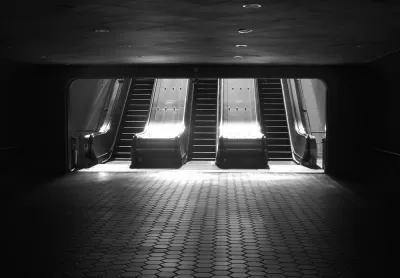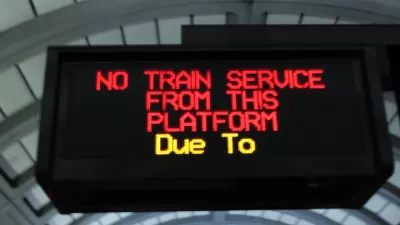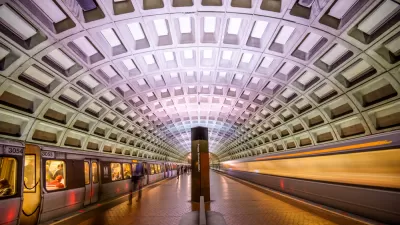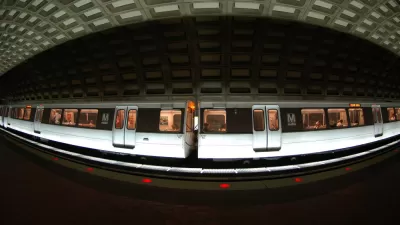With late-night weekend service on hold as the Metrorail service commences its SafeTrack maintenance program, will partiers stay home or simply find new ways to get around?

A post by Martin Austermuhle considers the possibility that the party might be over on weekends in the nation's capital, "as Metro does away with late-night service that for over a decade has kept trains running until 3 a.m. on Fridays and Saturdays." The shut down of service is part of the SafeTrack maintenance program, finalized in May and set to launch on June 18.
Austermuhle cites the example of the Big Hunt, located less than a block from the Dupont Circle station, and where "Metro's ups and downs can translate directly to how well the bar does." An employee of that bar claims that out-of-service escalators have impacted business in the past. It's a concern shared by many restaurant and entertainment businesses along Metrorail routes, writes Austermuhle.
Restaurants, clubs and late-night businesses across the region are now facing a new reality: Without an easy way to get around after midnight on weekends, bar-hoppers and night owls might spend less time out. And less time means less spending by consumers.
Austermuhle also considers the other side of the story: that in 2016, transportation network companies make have equipped people (who can afford it) with new mobility options (beyond driving drunk) that they wouldn't have had in the past. The new options raise the question of whether late-night transit users will even come back to the system once the SafeTrack maintenance work is complete.
FULL STORY: With Late-Night Metro Service Gone, Many Wonder: Is The Party In Washington Over?

Planetizen Federal Action Tracker
A weekly monitor of how Trump’s orders and actions are impacting planners and planning in America.

Maui's Vacation Rental Debate Turns Ugly
Verbal attacks, misinformation campaigns and fistfights plague a high-stakes debate to convert thousands of vacation rentals into long-term housing.

Restaurant Patios Were a Pandemic Win — Why Were They so Hard to Keep?
Social distancing requirements and changes in travel patterns prompted cities to pilot new uses for street and sidewalk space. Then it got complicated.

In California Battle of Housing vs. Environment, Housing Just Won
A new state law significantly limits the power of CEQA, an environmental review law that served as a powerful tool for blocking new development.

Boulder Eliminates Parking Minimums Citywide
Officials estimate the cost of building a single underground parking space at up to $100,000.

Orange County, Florida Adopts Largest US “Sprawl Repair” Code
The ‘Orange Code’ seeks to rectify decades of sprawl-inducing, car-oriented development.
Urban Design for Planners 1: Software Tools
This six-course series explores essential urban design concepts using open source software and equips planners with the tools they need to participate fully in the urban design process.
Planning for Universal Design
Learn the tools for implementing Universal Design in planning regulations.
Heyer Gruel & Associates PA
JM Goldson LLC
Custer County Colorado
City of Camden Redevelopment Agency
City of Astoria
Transportation Research & Education Center (TREC) at Portland State University
Jefferson Parish Government
Camden Redevelopment Agency
City of Claremont





























